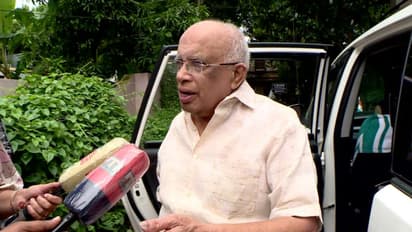Kerala: KSEB likely to hike power tariffs during peak night hours, slash daytime rates

Synopsis
KSEB plans to reduce daytime electricity rates for domestic use while increasing rates during peak night hours to address the power crisis. With most households now equipped with smart meters, the government can measure real-time consumption and implement time-of-day pricing, adjusting rates based on the time of use.
Thiruvananthapuram: Electricity Minister K. Krishnankutty has announced plans to reduce electricity rates during the day for domestic consumption and increase rates during peak hours at night to address the power crisis. Most households have already installed smart meters, which will enable the government to measure electricity consumption in real time. This will allow for time-of-day pricing, where rates vary depending on the time of consumption.
Kerala: NHRM woman employee shot with air gun due to personal enmity in Thiruvananthapuram
"Electricity consumption is low during the day, but it's highest at night. In this context, the government is considering increasing the electricity rate during peak hours to reduce maximum electricity consumption during that time," said K. Krishnankutty.
According to reports, the Regulatory Commission has made changes to the electricity supply code, introducing a single rate for all consumers, whether they require a post or not. This move is expected to reduce costs for those who currently pay for a post.
The electricity connection fee will now be calculated based on the connected load, rather than the cost of materials like posts and wires. For a single-phase connection (up to 5 kW) within 200 meters of a house or establishment without a post, the fee is Rs 1,800. For a three-phase connection (above 10 kW), the fee is Rs 4,600. Notably, the fee doubles or increases further when calculated based on the connected load.
Meanwhile, connections that need additional posts, which currently cost up to Rs 10,000 more per post, will now be charged the same rate as those without the need for extra posts, calculated according to the connected load. For connections exceeding 200 meters, the fee will be determined based on the actual cost of the materials used.
Stay updated with the Breaking News Today and Latest News from across India and around the world. Get real-time updates, in-depth analysis, and comprehensive coverage of India News, World News, Indian Defence News, Kerala News, and Karnataka News. From politics to current affairs, follow every major story as it unfolds. Download the Asianet News Official App to stay informed anytime, anywhere.